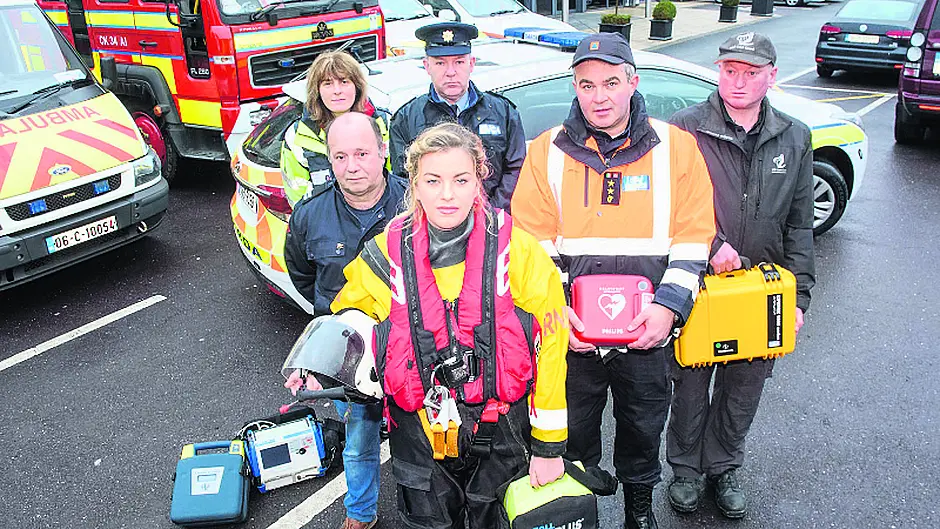A community-based First Responder group has been established in Kinsale.
A COMMUNITY-based First Responder group has been established in Kinsale.
The new volunteer First Response unit has committed support from local emergency services inlcuding An Garda Siochana, Civil Defence, Fire Brigade, RNLI, Coast Guard and the Irish Red Cross. The group’s aim is to provide emergency first response care to people living in the community who suffer cardiac arrest, choking, cardiac chest pain or stroke.
This week a public meeting will be held in Acton’s Hotel to inform the community on the time-critical work that the volunteer First Response team will be carrying out when requested.
The first ten minutes in a cardiac arrest is key, as you reduce the chance of survival by 10% for every minute that passes. Given these statistics, early intervention by means of a ‘Chain of Survival’ is vital to offer a casualty their best chances. The chain of survival includes recognising a cardiac event and calling 999/112; early CPR; rapid defibrillation, paramedic intervention, and hospital care.
Kinsale has a population of approximately 5,000, which can grow significantly in the summer months. And with the nearest ambulance bases in Cork city and Clonakilty over 30 minutes away, it is critical that first response measures are put in place to support the local community, according to the organisers.
The Community First Response network supports over 135 Community First Response teams in Ireland. Recognising cardiac chest pain is particularly important, since the probability of cardiac arrest occurring as a consequence of acute myocardial ischemia (heart attack) is at least 21%-33% in the first hour after the onset of symptoms. Immediate CPR, following collapse, can double or triple the survival from cardiac arrest. Reducing trained responder response times to five minutes could almost double the survival rate for cardiac arrests.
When a 999/112 call is made, a team is despatched by the National Ambulance Service at the same time as an ambulance. The First Responders live and work within a 5km area of the town, so are able to respond within minutes to a casualty. First Responders are trained and equipped to provide pre-hospital care prior to the arrival of an ambulance on the scene. For more, see www.cfr.ie










